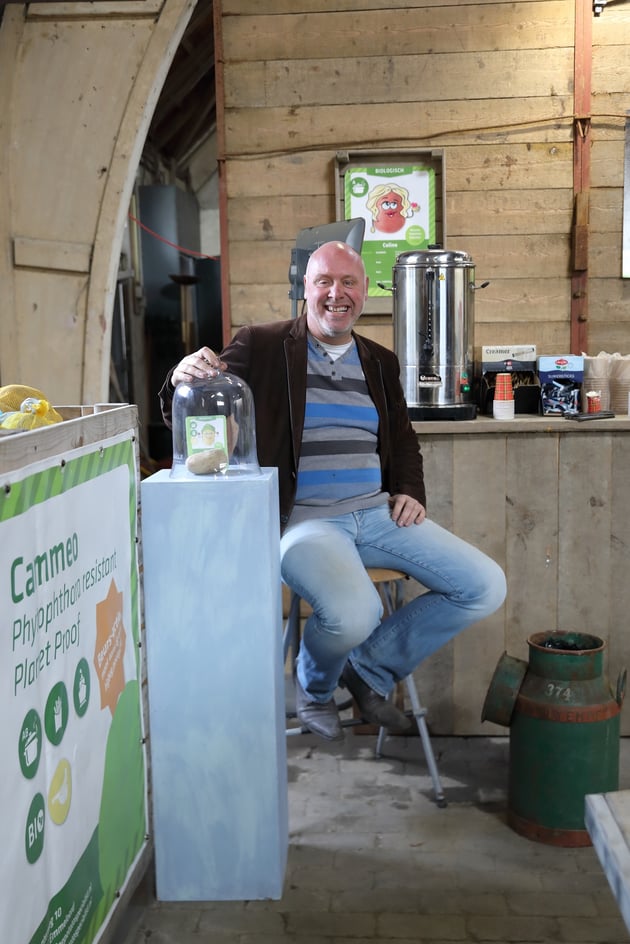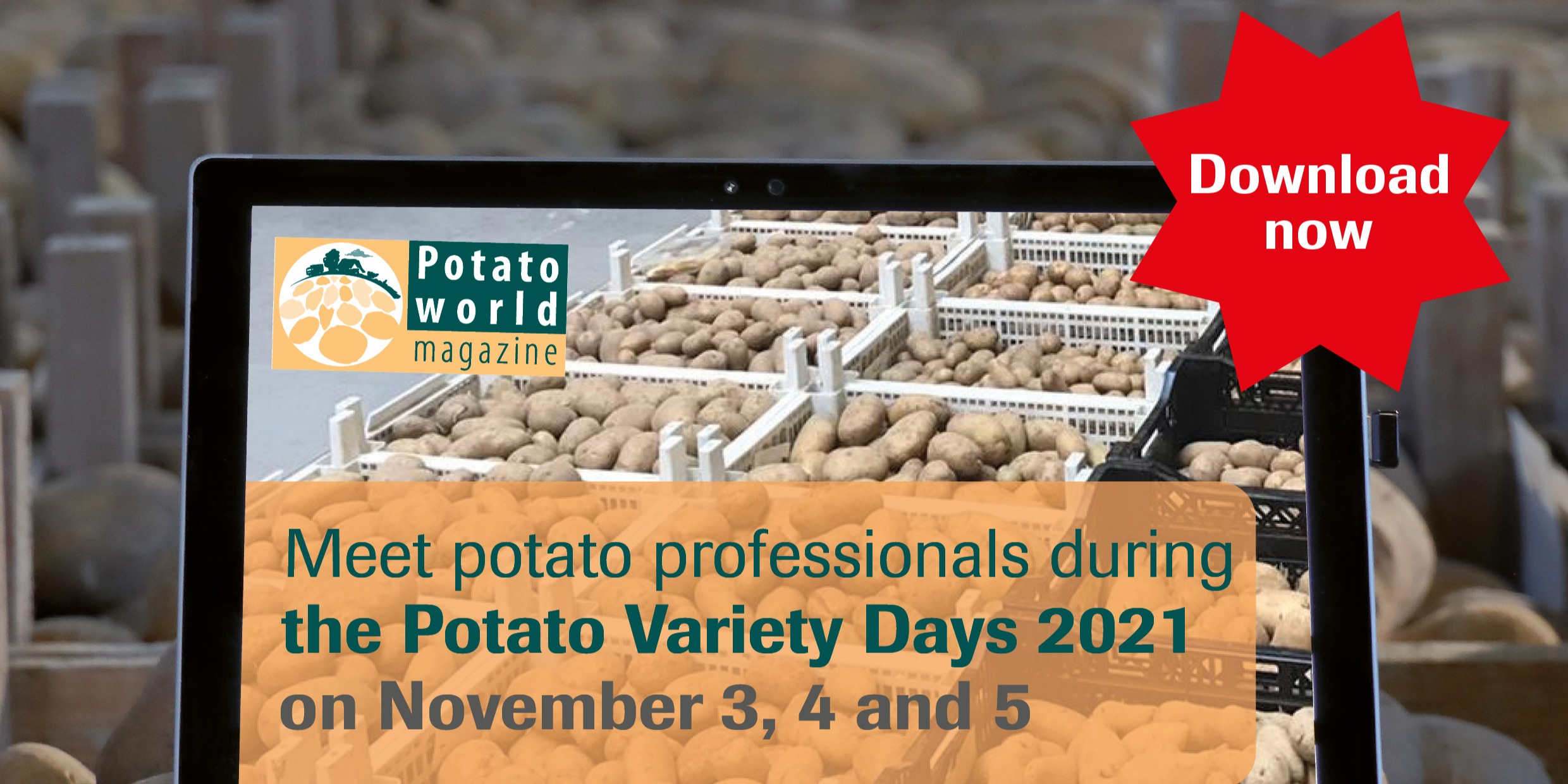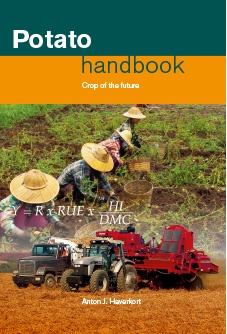The content of this blog originates from the article on the Potato Variety Days 2021 published in PotatoWorld magazine 2022/01.
By Zindziwe Janse, Jaap Delleman and Leo Hanse.
During the Potato Variety Days 2021, we asked participating breeding companies about the key focus of their breeders in their search for new varieties. In this blog post you may read the answer given by Jan-Eric Geersing, Owner/Director of Geersing Potato Specialist, Emmeloord (NL):
‘We’re turning out newly introduced resistances against Phytophthora very quickly’

How do you determine the topics you focus on in breeding? Jan-Eric Geersing repeats the question once again to make sure it’s properly understood. ‘In the end it’s about selling your varieties and where you think it’s heading, that’s what you’re aiming for’, he replied after a brief pause for thought.
‘Our focus has everything to do with sustainability. Yes, I know it’s an annoying catch-all term, but that’s the most apt description to indicate where it’s headed. I’ve worked in both breeding and crop protection, and what I see and hear is that the developments in these areas are going much faster than we ever anticipated. Chemicals are really going to disappear at a rapid pace. So the need to respond to this with organic means and variety breeding is increasing at the same rate. And you can’t separate these thing either, they go together. In fact, we always should be able to combine them. The problem at the moment is that we’re turning out newly introduced resistances against Phytophthora very quickly’. Phytophthora is so aggressive that you can't deal with it properly with resistances alone. Therefore, in both organic and conventional crop farming, we won’t be able to avoid using agents that help prevent resistance breakthroughs. I’m quite sure that small steps are already helping. Take, for example, a product such as Oroganic. That’s an organic plant enhancer based on orange oil, which is known to have a certain effect against Phytophthora. Spraying such a product plus having resistance considerably reduces the risk of a particularly resistance being broken considerably, I’m convinced of that. This is also the answer to your question of how do you know or how do you find out what is the best choice for the customer? Developing such products is for others, introducing variety resistance is my thing. It isn’t so long ago that breeders were saying: resistances don’t sell. But that idea is starting to change and those who weren’t convinced of it from the start are already reaping the benefits. Just look at varieties with nematode or virus resistance, they’re getting all the attention now. Phytophthora resistance is heading in the same direction, just look at a breeding company like Agrico Research. They want to move to fully Phytophthora-resistant varieties in ten years' time. I am convinced that it can be done. In a way, we’re simply joining that trend. For this purpose we have, among other things, the Cammeo variety, which is Phytophthora resistant, has a high yield potential and can be sold in a broad market segment: table, export and French fries. To demonstrate that I’m right, I have here the trial results of the Spanish potato trading company, Sesur from Seville, which compared our Cammeo with other resistant varieties last season. Read it for yourself: One of the strongest varieties resistant to Phytophthora and strong against scab too. Potential estimated yield: 65 t/ha. Potential % of average yield: 177 %. I need hardly add anything more?'
Want to keep reading about the Potato Variety Days?
In the run-up to the event we published an e-book that you can download here!


